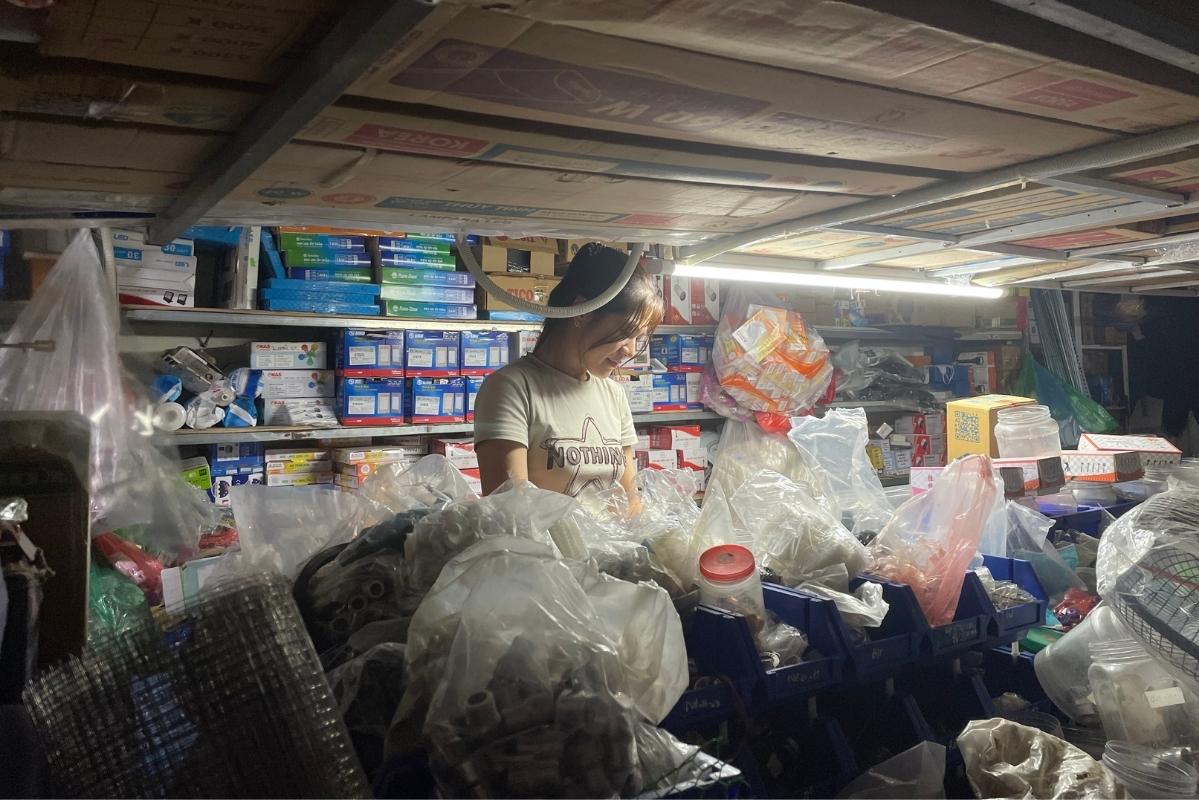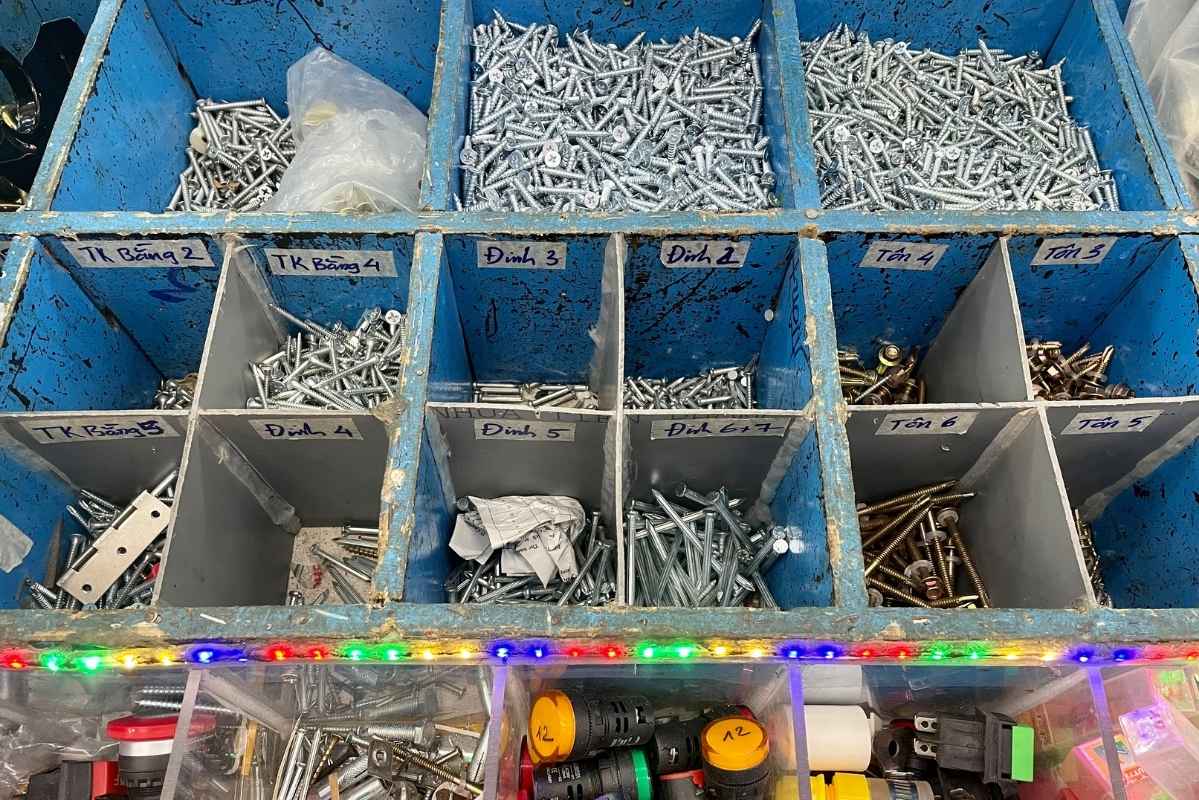Business households bear many fees
Quitting their work in the countryside to the city, Ms. Nguyen Thi Ha (Cau Giay, Hanoi) and her husband, who sell metal products, said: "Compared to households selling clothes and groceries, the products I sell are difficult to declare input invoices for, many are small-scale products".
Explaining the reason for not being able to start a business, Ms. Ha acknowledged that the revenue of small businesses has not met the requirements to be converted to a business. "We can't sell yet but we still have to think about taxes" - Ms. Ha said.

Coming to the city to do business, Ms. Ha had to leave her 3 children to her grandparents to take care of. According to Ms. Ha, raising 3 children in the city is not easy, in the countryside, the cost of living and schooling each of them is 3 million VND/month.
"With the resources to support the store and raise children, the couple had to borrow money. A month, I have to pay 13 million VND/month for rent, deducting electricity, water, living expenses of the couple, paying monthly debts, etc. - Ms. Ha added.
In the same metal business, Mr. Nguyen Van Lam (Yen Hoa, Hanoi) converted the store to a business, saying: "My business is a business with a chief accountant in charge. When put into business, the origin of the items will be easier for declaring input invoices. However, for small businesses with many items, input invoices for inventory and export goods are quite difficult".
Every month, Mr. Lam has to pay 8-10 million VND for the accounting position. This is a large amount of money "carried" when the store's revenue has somewhat decreased.
According to Mr. Lam, even small businesses have to go through many conversion procedures, especially in explaining output and input invoices.
"There are some items that do not have full invoices, the supplier has not yet received an input invoice. Many small items such as nails and screws cannot be fully declared" - Mr. Lam stated.

From practical difficulties, Mr. Lam proposed a method to support business households to avoid serious legal and financial risks.
"When the new policy is available, not only me but also business households hope to receive meticulous guidance from the tax authority to implement it correctly. Small business households do not have enough budget to hire more staff, they do not have enough expertise and knowledge to adapt, especially for the elderly" - Mr. Lam expressed.
Tax authorities guide business households to handle inventory
In response to business households' concerns related to inventory, Mr. Mai Son - Deputy Director of the Tax Department (Ministry of Finance) said that for inventory, it is important that the goods must be of legal origin and not violate the law.
"The goods may be bought from people, the sellers no longer need to use them. As long as the goods do not violate ownership rights, are not counterfeit or poor quality, the tax authority will record and assess the status of the goods when the household switches to declare" - Mr. Son said.
He said that business households will declare and pay taxes themselves, while tax authorities are responsible for supporting, guiding, and together determining the expected value and revenue. Business households need to declare and fully list to prove the origin of inventories. The determination of value should be based on inspection, market price and specialized valuation results.
"During the conversion period, there will certainly be problems, but the tax industry will guide households to determine the correct value of goods. In addition to the tax sector, market management agencies and specialized units will also coordinate to control goods and prevent counterfeit and violating goods" - Mr. Son emphasized.
According to the representative of the Tax Department, similar situations have been prepared by the tax sector in the guidance document, and at the same time, officers in charge have been arranged for each locality, area and hotline to receive and promptly respond to taxpayers.
On August 13, 2025, the Tax Department issued Official Letter 3153/CT-NVT in 2025 on responding to feedback on recommendations related to the field of tax management.
Accordingly, regarding the recommendation for guidance on input invoices for inventory arising before June 1, 2025 for business households, the Tax Department has the following opinion:
Pursuant to Clause 4, Article 5 of Circular 40/2021/TT-BTC, the tax calculation method for business households paying tax according to the declaration method is stipulated as follows:
Tax calculation method for business households and individuals paying taxes according to the declaration method:
4. Business households and individuals paying taxes according to the declaration method must implement accounting, invoice, and document regimes. In case a business household or individual doing business in a field or profession has a basis for determining revenue according to the confirmation of the competent authority, they do not have to apply accounting regimes.











